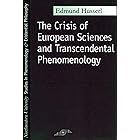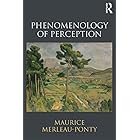These promotions will be applied to this item:
Some promotions may be combined; others are not eligible to be combined with other offers. For details, please see the Terms & Conditions associated with these promotions.
Your Memberships & Subscriptions

Download the free Kindle app and start reading Kindle books instantly on your smartphone, tablet, or computer - no Kindle device required.
Read instantly on your browser with Kindle for Web.
Using your mobile phone camera - scan the code below and download the Kindle app.

The Phenomenology of Internal Time-Consciousness Kindle Edition
The Phenomenology of Internal Time-Consciousness is a translation of Edmund Husserl’s Vorlesungen zur Phänomenologie des inneren Zeitbewußtseins. The first part of the book was originally presented as a lecture course at the University of Göttingen in the winter semester of 1904–1905, while the second part is based on additional supplementary lectures that he gave between 1905 and 1910. The pervading theme of these essays and lectures is the temporal constitution of a pure datum of sensation and the self-constitution of “phenomenological time” which underlies such a constitution. Husserl identifies two categories of temporality—retention and protention—and outlines how temporality provides the form for perception, phantasy, imagination, memory, and recollection. He demonstrates a distinction between cosmic and phenomenological time and explores the relevance of phenomenological time for the constitution of temporal objects. The ideas Husserl developed here are explored further in his Ideas and were pursued until the end of his philosophical career.
“As an addition to the small body of Husserl’s writings now available in English (Ideas 1931; Meditations, 1960), this book is essential to even a small collection of source works on contemporary philosophy.” —Choice
Customers who bought this item also bought
Editorial Reviews
Review
"As an addition to the small body of Husserl's writings now available in English (Ideas 1931; Meditations, 1960), this book is essential to even a small collection of source works on contemporary philosophy."―Choice
About the Author
Edmund Husserl (1859–1938) is often credited as the father of phenomenology, and his work was influential to later phenomenologists including Heidegger, Sartre, Merleau-Ponty, Gadamer, Levinas, and Derrida. He is author of Logical Investigations and Ideas.
Product details
- ASIN : B07S7P99WQ
- Publisher : Indiana University Press (April 29, 2019)
- Publication date : April 29, 2019
- Language : English
- File size : 1.0 MB
- Text-to-Speech : Enabled
- Screen Reader : Supported
- Enhanced typesetting : Enabled
- X-Ray : Not Enabled
- Word Wise : Enabled
- Print length : 182 pages
- Best Sellers Rank: #320,478 in Kindle Store (See Top 100 in Kindle Store)
- #16 in Phenomenology
- #21 in Physiological Aspects in Psychology (Kindle Store)
- #87 in Phenomenological Philosophy
- Customer Reviews:
About the author

Discover more of the author’s books, see similar authors, read book recommendations and more.
Customer reviews
Customer Reviews, including Product Star Ratings help customers to learn more about the product and decide whether it is the right product for them.
To calculate the overall star rating and percentage breakdown by star, we don’t use a simple average. Instead, our system considers things like how recent a review is and if the reviewer bought the item on Amazon. It also analyzed reviews to verify trustworthiness.
Learn more how customers reviews work on AmazonTop reviews from the United States
There was a problem filtering reviews. Please reload the page.
- Reviewed in the United States on June 9, 2024The text is heavy if you read too fast. You need to have some familiarity with Husserl's usage of "essence" as it is not the same as the Aristotelian notion. By Husserlian essence is to identify the invariant structures of phenomena that are "given" or "presented" to consciousness; invariant as in testing against phenomena by their dependencies and supplemental characteristics. He works out how various acts of consciousness (recollection, imagination, perception, and so on) operate through the present, past, and future. His distinction of retention-protention is a fruitful relationship to speak about the flux of time in the presentation of phenomena and investigates the necessary and contingent relations through them.
It is such an amazing book, it is a must-read for those wishing to learn Husserl's descriptive approach in practice. Probably one of the deepest explorations on the question of time perhaps next to Heidegger's hermeneutical investigation.
- Reviewed in the United States on February 4, 2007What can you say about one of the greatest thinkers of alltime who inspired other greatest thinkers of alltime? Well, one could say that this book - which often isn't even listed as a work of his on certain lists (see wikipedia) is his very very best. By far the most insightful book ever written about how consciousness interacts with the reality of space-time. His thought provoking ideas into intentionalities and replaying memories is nothing short of amazing. The appendix to this book will take you a decade to absorb. Incredible thoughts for the late 1800's and early 1900's.
Top reviews from other countries
 Amazon CustomerReviewed in Canada on December 24, 2019
Amazon CustomerReviewed in Canada on December 24, 20191.0 out of 5 stars Husserl never wrote a book
Not good enough all the real texts are at the school
 Paul Robert HydeReviewed in the United Kingdom on January 28, 2024
Paul Robert HydeReviewed in the United Kingdom on January 28, 20245.0 out of 5 stars It's a book so I am reading it. Not easy.
I used this book for reading so I can understand the mystery of time consciousness as explained by Eddie Husserl.











